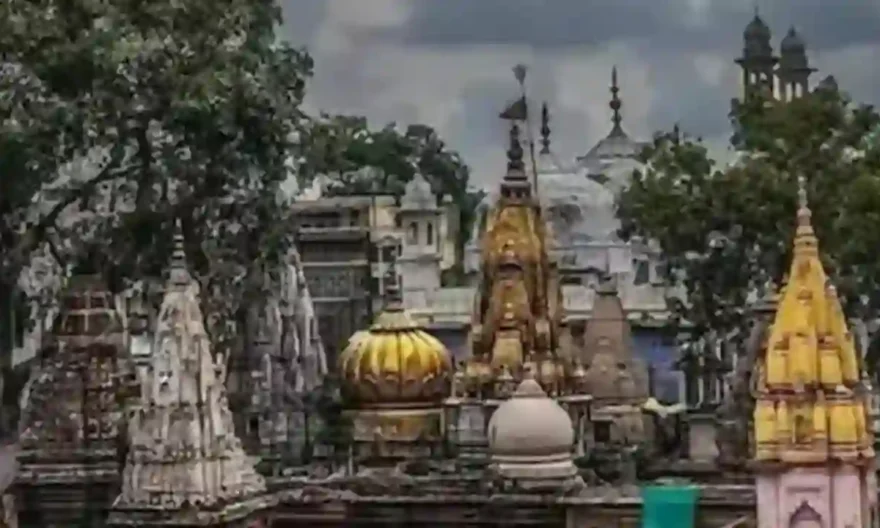
The Varanasi District Court has granted permission on Hindu worshippers plea for a survey of the entire Gyanvapi mosque premises (excluding the Wuzukhana) by the Archaeological Survey of India (ASI). The application, filed by the Hindu devotees, sought this survey of the mosque located near Kashi Vishwanath Temple in Varanasi. The Court Directed ASI (Archeological Survey of India to Conduct the Survey of Entire Premises and filed final report by 4th of August.
The survey is likely to to assess the historical and archaeological significance of the mosque and its surroundings. The court’s aimed at understanding the site’s historical context and its implications for the ongoing legal dispute.
Background
The Gyanvapi Mosque, located in Varanasi, Uttar Pradesh, is a historically and religiously important site for both Hindus and Muslims. According to historical accounts, the mosque was built in the 17th century by the Mughal emperor Aurangzeb on the site of the original Kashi Vishwanath Temple, a sacred Hindu temple dedicated to Lord Shiva. The temple’s original structure was partially destroyed during the construction of the mosque.
Legal Dispute
For decades, the site has been a subject of dispute between Hindu and Muslim communities over its ownership and control. Hindu groups have claimed that the Gyanvapi Mosque was constructed after demolishing the original Kashi Vishwanath Temple, and they have been seeking the restoration of the temple at the site. On the other hand, Muslim groups have contested these claims and argued for the mosque’s preservation.
ASI Survey
The Archaeological Survey of India (ASI) is a governmental organization responsible for exploring, excavating, and conserving India’s historical monuments and sites. In the context of this dispute, the ASI has been called upon to conduct a comprehensive survey of the Gyanvapi Mosque premises to assess its archaeological significance and gather historical evidence related to its construction.
Wuzukhana
The ASI survey of the entire Gyanvapi Mosque premises, except for the Wuzukhana. The Wuzukhana is the area used for ablution or cleansing before prayers, and it has been excluded from the survey, Because the A Shiv Linga was found during Court Commission Investigation and this matter is pending in Supreme Court. s.
Implications
The court’s decision has garnered attention from both Hindu and Muslim communities, as it could have far-reaching implications for the ongoing legal battle over the site’s ownership and control. The ASI survey findings may serve as crucial evidence in the court proceedings, shedding light on the historical background of the site and its religious significance.
It is important to note that the court’s decision to allow the ASI survey does not imply any final determination of the ownership or control of the Gyanvapi Mosque. The survey is aimed at providing an objective and scientific assessment of the site’s historical aspects, which can be used as evidence during the legal proceedings.
Overall, the Varanasi District Court’s decision to permit the ASI survey marks a significant step in the resolution of this complex and emotive dispute, and it will be closely watched by both communities and legal experts alike to see how it impacts the ongoing case and future developments concerning the Gyanvapi Mosque.




